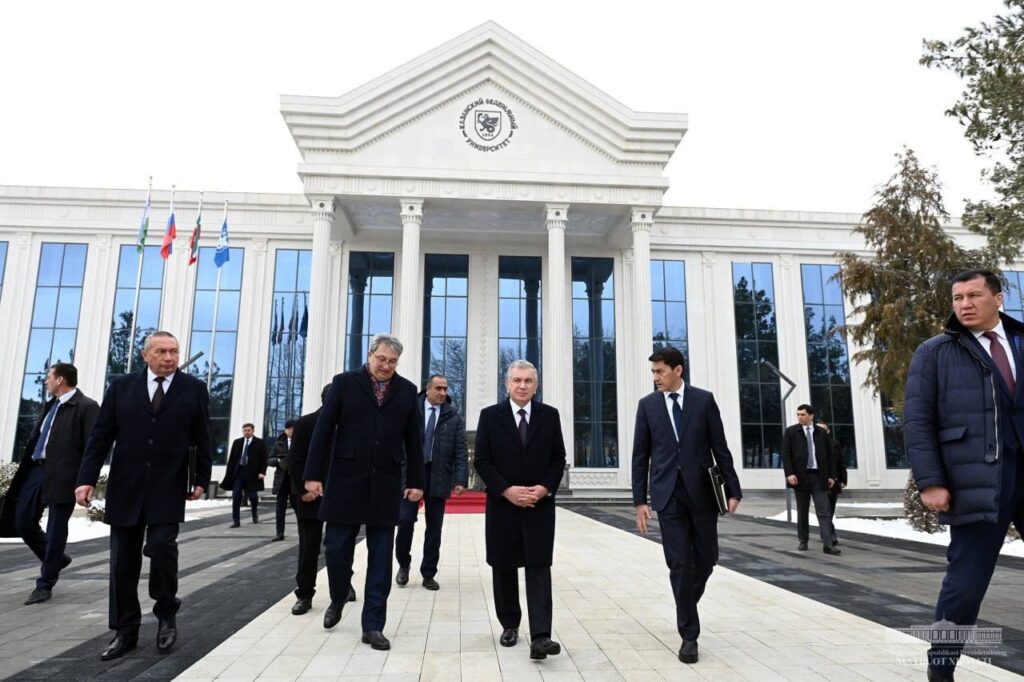AN ACADEMIC QUESTION – JIZZAKH’S GROWTH BEYOND 2024
Academic Growth is an important factor in the Ubzbekistan’s development. The progress of every country is measured with respect to the developments in agriculture, education, healthcare and infra structure. The education sector plays a vital role in contributing for the technological developments and hence increase the opportunities for employment and industrial growth. Today, the global focus is on the sustainable developments and it is the right time to summarize the evolution of academic growth in Uzbekistan and especially in the Jizzakh region.

The Jizzakh region lies at the centre/east of Uzbekistan with Jizzakh as its capital city. Approximately 53% of people live in rural areas. A major highlight is the special economic zone set up by the Government of Uzbekistan in collaboration with China contributing to joint projects in both the agro-industrial and mechanical sectors. In the last decade the growth of the Jizzakh region in all sectors is tremendous and expected to be still higher in the upcoming years. One of the major reasons for this progress is the tangible improvements in the academic arena.
This is vivid from the statistical reports highlighting that the number of students enrolling for the primary, secondary and tertiary education has grown three fold. Enrolment in evening courses in higher educational institutions is also increasing.
At this juncture, it is also essential to understand the history of the tertiary education system in Uzbekistan and the transition after the Independence in 1991. The structure of the education system was inherited from Soviet times and has grown tremendously in the last two decades with well developed Universities and research institutes. The world bank report in 2014 depicted that the major challenges faced by the tertiary education system in Uzbekistan are low access, inadequate quality and relevance of graduates and low research production. But the last decade has changed the scenario and shown improved contribution in the tertiary education system. In 2018, the Government of Uzbekistan also developed an Education Sector Plan (ESP) 2019-2023 with extensive consultations with the Local Education Group (LEG), coordinated by UNICEF. The ESP 2019- 2023 elaborated the sectoral priorities for all sub-sectors of education and developed an action plan for the government to follow during the period 2019-2023 and beyond.
The policies focused on three major priorities: Access and Participation, Quality and Relevance, and System reforms and Management. Access and participation were increased by ensuring a safe and enabling learning ecosystem. Moreover, the quality of the education system is improved by developing standard curriculum and competent assessment tools. Teaching learning tools and technology for pedagogy plays a vital role in motivating learners and also creating a competent workforce. This further extends with effective management of the TLEP ecosystem at various levels of the sector. To meet the global competency and to serve the changing requirements of the society the education system has undergone a huge transformation.
Higher secondary Education (16 to 17 years)
The increase in the number of enrollments for higher education is a positive note that acknowledges the development of the academic sector of Jizzakh. The equitable access at all levels is observed in the recent past by new construction, reconstruction and also renovation of schools in this region. The academic structure and pedagogy have oriented towards the following prime factors.
- Active development of all domains including the cognitive, creative, language, socio- emotional and healthy lifestyle.
- Mapping the competencies of developments including communication, play, socialization and cognitive developments
- Creating an active teaching workforce by insisting on teaching professional standards, following a teacher quality framework and conducting special training programs, guidelines for teachers to ensure holistic development, proper education planning and teaching, assessment with modern tools, professional development etc.
- Systemic reforms, governance and management using MIS tools to monitor the progress in knowledge transfer at each level in a centralized database system enabled with IT.
Above all, the educational quality assurance framework ensures a systematic review occurs to improve quality and efficiency. The usage of ICT tools as a pedagogic tool has tremendously increased and improved the teaching capacity and professional development. Project based learning, Tool based learning, Research based learning have resulted in tangible outcomes of the learners. Recent studies have proven that GER in higher education has increased in Jizzakh region. There is a notable improvement in the gender parity too due to the proactive efforts of the Government to enroll more female students, attract foreign universities, and encourage private institutions. This is certainly a positive note to ensure improvements in academia both in terms of curriculum and standards and hence contributing to enhanced quality and employability of the nation.
Dr.P.Pradeepa,
Vice Rector- Academics, Sambhram University, Jizzakh
